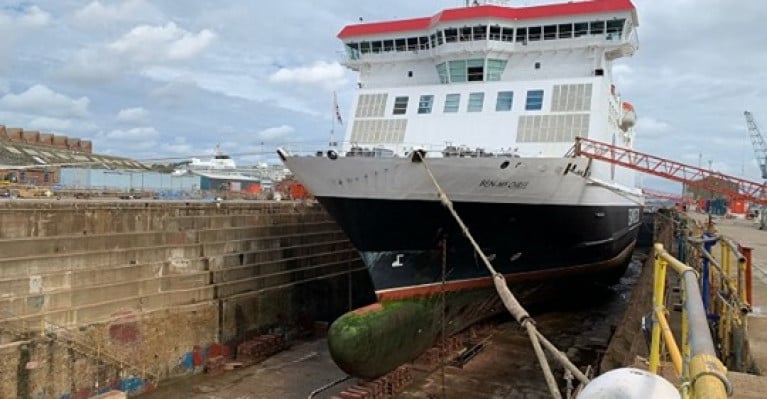Displaying items by tag: Main Manx ferry
Work to Repair Main Isle of Man Ferry to Cause Disruption in March
Work to repair the Isle of Man Steam Packet Company’s main passenger ferry operating the Douglas-Heysham route will see overnight sailings from Lancashire temporarily scrapped next month.
The Steam Packet’s ropax, Ben-my-Chree is to head to the Mersey and enter dry-dock from 23 to 31 March at the Cammell Laird shipyard in Birkenhead.
According to the ferry firm, work had been brought forward to ensure a "resilient service" ahead of the arrival of the new ferry the Manxman which has been delayed due to a gearbox fault.
While the Ben-My-Chree is off service, the fast-craft ferry, Manannan will operate daytime passenger services on the Douglas-Heysham during the period.
The operator’s relief freight-ferry, MV Arrow will carry out evening services.
As for passengers affected by the disruption, they will be contacted in the coming days, a Steam Packet spokesman said.
Further coverage from the BBC News on the impact to schedules.
The main Isle of Man ferry, the ro-pax Ben-my-Chree is expected to be in shipyard dry dock for a further six days following issues discovered during a routine annual maintenance.
Operator, Isle of Man Steam Packet says worn bearings on the vessel need replacing.
According to Manx Radio, it means the 'Ben' will now return to service on Thursday, 13 May, in time for the morning 8:45am sailing to Heysham.
Until then, the fastcraft Manannan will continue the daytime sailing service to the Lancashire port, whilst the MV Arrow will be in charge of bringing freight across.
Meanwhile, (today's) Monday's daytime sailings to Heysham are subject to possible disruption or cancellation.
























































